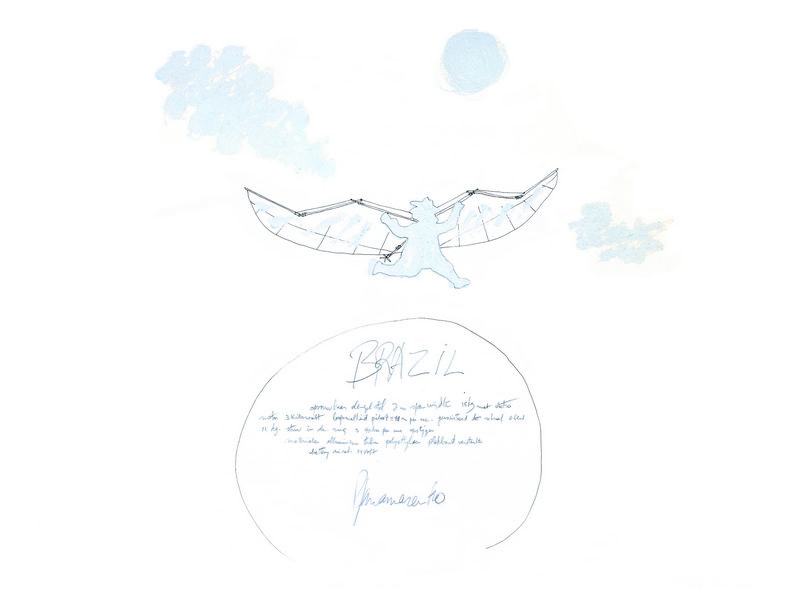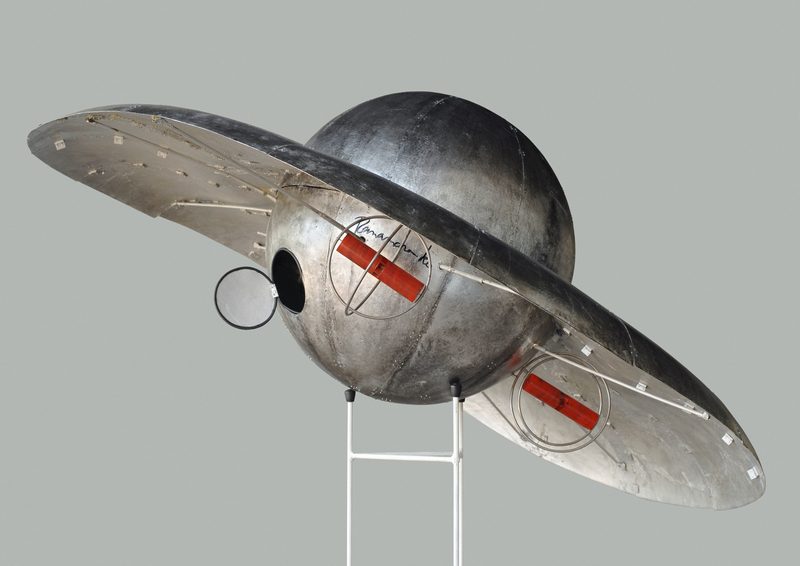ART CITIES:Antwerp-Panamarenko
“Panamarenko Universum” is the grand and one-time return of Panamarenko to his hometown of Antwerp. Almost ten years after the retrospective at the KMSK in Brussels, M HKA devotes a unique retrospective to the work of Panamarenko. The artist takes a central place in the approach to art of the M HKA, which takes as its point of departure the avant-garde of the 1960s, where local stood synonymous for open and international.
By Dimitris Lembesis
Photo: Museum of Contemporary Art Antwerp Archive
For the M HKA, the central position of Panamarenko is expressed in the museum’s most ambitious project of the past decade: the renovation and refurbishment of Panamarenko’s studio on Biekorfstraat, in Antwerp’s legendary Seefhoek district. Since then, the M HKA has also acquired the Panamarenko archive of Paul Morrens. The exhibition is yet another step in the sustained commitment of an Antwerp museum devoted to a key artist of the city. He was mainly seen as a ‘strange fellow’ with magical sculptures. The retrospective does not aim to bring together as many works or material as possible, but wants to explore both the works and the interconnective context that could possibly constitute the foundation of Panamarenko’s oeuvre. For the first time, the multitude of vehicles and devices Panamarenko has created between 1965 and 2005 is organised into a thematic and chronological overview, aiming to create both a clear and varied picture of Panamarenko’s work. The focus lies on three key aspects: works, actions and thinking. In this way, the exhibition creates a detailed view on how and why Panamarenko, from the sixties onward, gradually became an icon of the post-war European avant-garde. In addition to masterpieces such as the submarine Pahama, the Donderwolk and the legendary Prova Car, the exhibition includes more than40 major key works, together with drawings, objects, models and editions. Highlighted as well are Panamarenko’s happenings from the sixties, his scientific insights and artistic statements. The exhibition is divided into historical periods and sectors per decade. Each sector includes the most representative devices and drawings within the genre, creating a cohesive yet at the same time diverse whole.
Info: M HKA – Museum of Contemporary Art Antwerp, Leuvenstraat 32, Antwerp, Duration: 3/10/14-29/3/15, Days & Hours: Tue-Wed & Fri-Sun:11:00–18:00, The: 11:00–21:00, www.muhka.be



![Panamarenko, Grote Elleboog [Big Elbow], 1990-1992, Museum of Contemporary Art Antwerp Archive](http://www.dreamideamachine.com/web/wp-content/uploads/2015/02/056.jpg)


